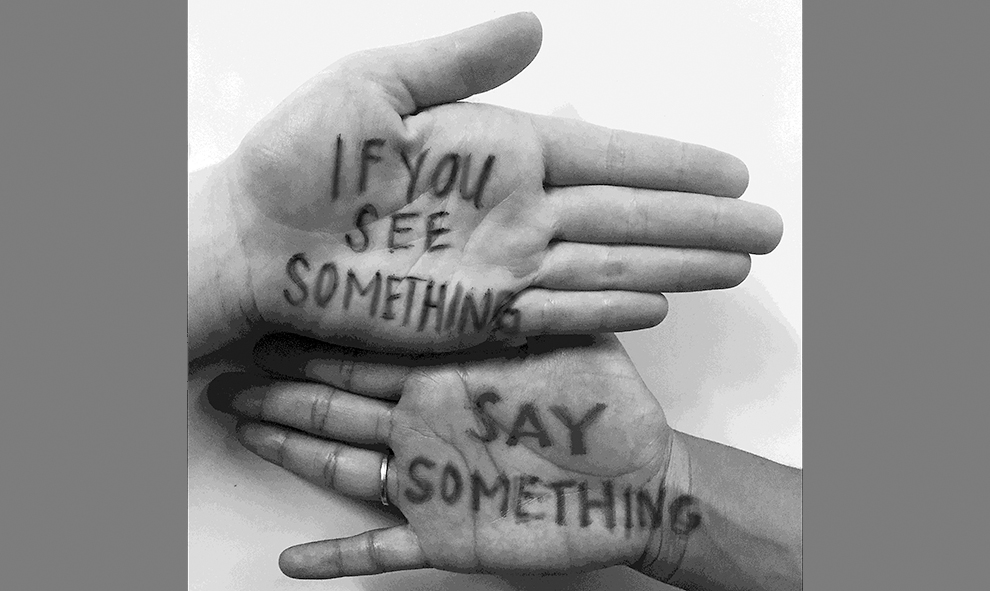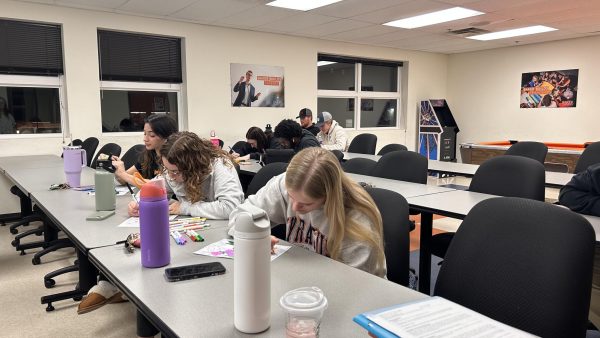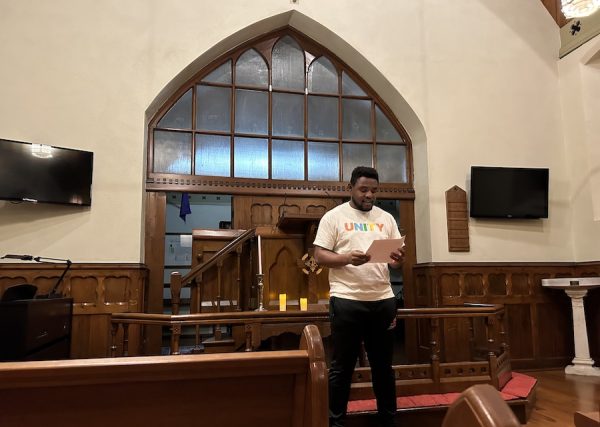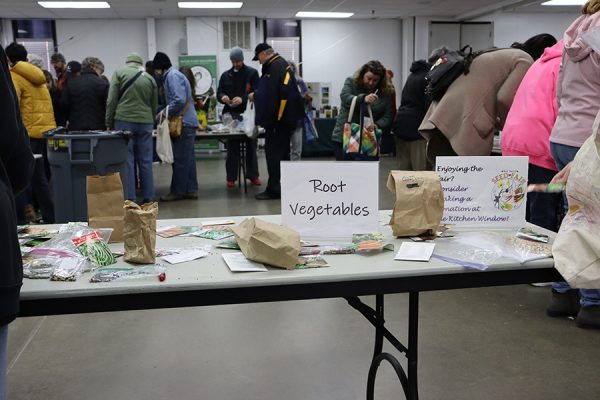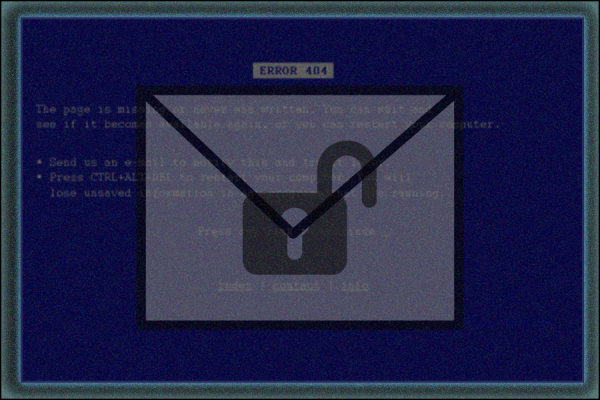Mandate draws attention to sexual misconduct on campus
October 28, 2015
From 2012 through 2013, Baker University reported no cases of sex offenses, either forcible or non-forcible, to the federal government. The 2014 year will show three cases, making it seem as though Baker had an increase in rape. That may not be such a bad thing.
NEW TO BU
The truth may not be that Baker experienced more sexual violence cases than it would normally, but rather that more attention is being drawn to cases of sexual misconduct.
As a result of new additions to Title IX enforcement, the federal government now expects universities to appoint a Title IX coordinator, report sex offenses with or without victim consent and implement policies and programs to better educate and protect students from the dangers of sexual misconduct.
The new Title IX coordinator, Dean of Students Cassy Bailey, could not be happier about the enforced reporting.
“It’s not a role I’m unfamiliar with. It’s a role that I did before a title, and a role I would do without a title,” Bailey said. “But it’s a way to make sure things are fair, and you really do have to do that so everyone can have their fair say.”
Under the old Title IX practices, reporting sexual offense cases was not a federal requirement. Involved parties had the power to decide what was true and what was left as rumor.
Most often, for one reason or another, a majority of sexual misconduct cases never make it to the Clery report, which is the official documentation of university crime reported by each university to the federal government. In order to better protect both victims and the accused, universities are now being forced to spend more time and effort ensuring that all cases of rape are given the appropriate amount of attention, and that students are properly educated about sexual misconduct on campus.
For Bailey, taking on the role of Title IX coordinator is one way she can help the university get the full truth, instead of rumors that only lead to more questions.
“You need an unbiased person who can run an effective, prompt, fair and equitable investigation so that there will be a conclusion at the end as opposed to vicious rumors,” Bailey said.
Teresa Clounch, associate dean of students and director of diversity and inclusion on campus, believes that if anyone at Baker can successfully fill the role of Title IX coordinator, it is Bailey.
“For anyone who is the Title IX coordinator on their campus, it’s a tough job, yet it’s a very important one,” Clounch said. “It’s important to be knowledgeable of, have access to and share that kind of information and Cassy Bailey does a very good job of that.”
Though the new regulations now require educational programming and response procedures for cases of sexual misconduct, Bailey believes Baker is a step ahead of some universities with educational awareness programs like the Baker Rallies Against Violence (BRAV) organization and procedures already in place.
PROBLEMS OF THE PAST
Title IX has lasted more than 40 years. As of 2015, the federal government now requires each university to submit an Annual Security Report (ASR) explaining everything universities do to secure their campuses.
“They want to know how do we educate students about sexual misconduct, about student handbooks and about crimes on campus, things like BRAV,” Bailey said.
As a huge supporter of Title IX, Bailey is thrilled to see the progress that has been made since Title IX was initiated.
“Title IX has been in effect since 1972 to protect women and give us full access to everything in the educational arena,” Bailey said. “We saw in the ‘60s the Civil Rights movement where people were no longer able to discriminate based on color or nationality or origin, but in the beginnings of the ‘70s, we saw Title IX come into effect where gender was also considered a protected class … What didn’t pick up as much steam was the area of sexual assaults, which now falls under Title IX.”
In 1994, then-Congressman Joe Biden promoted the Violence Against Women Act, or VAWA. Then in 2008, Title IX became a part of the Office of Civil Rights.
“What we were seeing before were victims who were discouraged from reporting,” Bailey said. “Universities were hiding it under rugs, processes and policies weren’t in place to protect both the accusing student and the accused student so it wasn’t a fair process for either side, and universities did not have to have policies in place. But, as of March 1, 2014, President Obama said ‘Yes, you will.’”
BEING FAIR TO BOTH SIDES
Bailey believes strongly that, when it comes to cases of cases of sexual misconduct, fair treatment to both sides is one of her most critical responsibilities as Title IX coordinator.
“The thing that people forget is that for every accusing student there is an accused student who deserves fair and prompt treatment as well,” she said. “So allowing cases just to sit with a faculty member is not fair, because that person never gets to clear their name.”
Moving forward, Bailey is hopeful that the new mandate will now allow universities across the country to put a stop to the under-reporting of sexual misconduct cases and give all students fair and equal treatment when cases arise.
Violence Against Women Act
• VAWA mandates that victims are not forced to bear the expense of their own rape exams.
• Since VAWA passed, intimate partner violence declined 67 percent.
• Supporters say VAWA has led to increased rates of prosecution, conviction and sentencing of offenders.
EDUCATING CAMPUS
Tamara Slankard is an assistant professor of English at Baker and is the founder and faculty coordinator of Baker’s BRAV program. BRAV is dedicated to educating students about the dangers of sexual violence on campus and spreading awareness.
Slankard is involved in every aspect of BRAV, from selecting student leaders to creating presentations and brochures.
“There are really two parts to BRAV,” Slankard said. “There are trained peer educators. I recruit passionate students who are good students and good citizens that want to have a more public role in doing something about sexual assault education and prevention, and they do a half-semester course of training and then go out and give presentations to all of the athletic teams, the fraternities and sororities and the residence halls.
Then there is the larger group made up of peer educators and other students wishing to become more involved, and we do awareness events on campus.”
Slankard believes that the Title IX requirements are vital to solving many problems that can come with sexual misconduct on a campus as small as Baker.
“What’s different about a place like Baker is that it is so small, and the campus community is so close,” Slankard said. “That can backfire and make it more difficult.”
She said that on a smaller campus, students may find it more difficult to a) come forward when something does happen to them, b) feel empowered to speak out when they fear something has happened or will happen; and c) remain on campus, a place where they deserve to be, if something has happened to them.
FRUSTRATION WITH LIMITATIONS
After arriving at Baker and assessing the problem, Slankard was determined to find a solution. Feeling moved and even angry at the idea of student suffering, she decided to form BRAV and help to educate students about sexual misconduct with the hopes of helping to prevent future pain, but she finds even BRAV has its limitations.
“I would like to see there be more of an institutional prevention response. We could be more effective if the BRAV students could get in front of the whole student body,” Slankard said.
“Unfortunately, I think that sometimes students think that we are just about lecturing to student athletes, which is not the case at all. The athletic department has just been tremendously supportive of the efforts of BRAV, so we always wind up in front of the student-athletes instead of all of the students.”
Disheartened by the lack of reporting, Slankard is relieved to see Title IX reinforce the university’s need to educate and prepare students for sexual misconduct on campuses around the country.
“The White House administration has mandated that colleges do our part to not only respond to incidents that have already happened, but to fulfill our responsibility to educate students beforehand so that we can try to prevent it from happening at all, and empower the entire campus community to do something about it when it does,” Slankard said.
A SERIOUS PROBLEM, EVEN AT BU
Although Baker has been ahead of many universities around the country in developing awareness and prevention programs, Slankard recognizes that the problem is more serious than it may seem, even at Baker.
“I think we’re like any college campus,” Slankard said. “I think the national statistics say that based on our student population, we expect that 20 to 25 women are victims of sexual assault, not to say it doesn’t happen to men, but statistics tend to focus on women since sexual assault cases involving men are even less likely to be reported, so even if we said Baker was twice as safe as average colleges, then that means a dozen women are raped on this campus every year, and that’s unacceptable.”
Clounch agrees with Slankard that education is key in preventing cases of sexual misconduct on campus.
“Education is always important,” Clounch said. “The more information you can share with students, faculty and staff and the community at large, the better. Once people have that information, they are able to make informed decisions, help each other, and really we want everyone to be informed and be a non-active bystander.”
A STUDENT’S STORY
Despite Baker’s efforts to remain sexual-violence-free, senior MacKenzie Sammons found herself in a situation in which the advice of BRAV came in handy.
“When I was a freshman, a girl was stumbling around campus with no pants on, and she appeared to be intoxicated. Myself and a friend had to help this girl into her door and her room, and it was very touch and go. It didn’t seem like the typical signs of someone being drunk, so I assumed the worst. It was a scary situation getting her tucked into bed, but unlike most people I did report it. My friend and I stepped forward and spoke to Cassy Bailey, and she reached out to the student in question.”
Sammons agrees that the Title IX requirements are long past due, though she also finds Baker to be a safer place than most universities.
“I’ve always considered Baker a home away from home,” Sammons said. “The new program, ‘What it Takes to be a Wildcat,’ is informative and effective. I think it is a great stepping stone to make everyone on campus feel that this is a safe place, and it encourages them to not be an inactive bystander.”
ONLY THE BEGINNING
Bailey, Slankard, Sammons and Clounch would argue that Title IX is just the beginning.
“There’s always more that everyone can do,” Clounch said.
“Students can come get information, we send it out event info via email, but it’s always a never-ending process to continue to educate and inform students,” Clounch said. “The more people who see the flyers or see the tabling event or go to speakers … the more the word gets out.”
For now, Clounch would suggest that students do what BRAV instructs and always keep a keen eye out for themselves and their peers to help prevent future problems on BU campus.
“I would say that we ask students to take all of the same precautions on our campus as you would when traveling to other campuses,” Clounch said. “And stay safe.”



